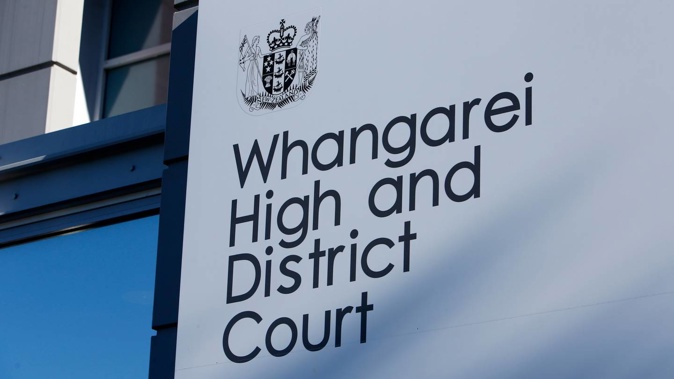
/cloudfront-ap-southeast-2.images.arcpublishing.com/nzme/GVTUITHPWVKFU7LYQQGVZ4322M.jpg)
A 14-year-old has walked free from an armed robbery charge after a judge ruled police acted unlawfully by arresting him - and not in the "public interest" as they claimed.
Police arrested the teen at his home last December, believing he was part of a group of four – one of them allegedly armed with a gun – who robbed Young's Four Square in Whangarei, a month earlier.
The teen's alleged involvement was seen as an escalation in a spree of offending. He had earlier admitted 21 previous charges - 17 of unlawfully taking or getting into vehicles, two of burglary, reckless driving, and escaping custody.
At the time of the robbery he was absconding from electronically monitored bail, having cut off his monitoring bracelet.
In the Whangārei Youth Court yesterday Judge Greg Davis said young people can only be charged for an offence through two means, one of which includes reasons of "public interest" as set out in provisions for arresting youth in the Oranga Tamariki Act. It was the reason police cited in this case.
Youth advocate Dave Sayes challenged the arrest, claiming police did not have "public interest" grounds to justify the arrest and that the charges should be dismissed.
Counsel Tracy Donald said the arrest also breached the Act's governing mandatory guiding principles about the rights and wellbeing of children.
She said the teen was due to appear in court on the earlier matters the day police arrested him and could have been charged there for the aggravated robbery.
Police did not oppose ongoing bail so arresting him that day achieved nothing other than having him patted down in front of his neighbours and kept in police and court holding cells unnecessarily.
Arresting a young person was meant to be a last resort, Donald said.
Crown counsel Ally Tupuola argued police were mindful of the guiding principles of the Act; officers acted with due diligence and that they were right to make the arrest for "public interest" reasons.
She pointed to the non-recovery of the firearm allegedly used in the robbery, the teen's recidivism, the escalation in his offending, and his previous absconding from bail.
She said officers arrested the teen when there was no risk of embarrassing him in front of his peers.
Judge Davis accepted the manner of the arrest was without incident, the issue was whether it was necessary.
After arresting the teen, police filled out a checklist in which they effectively said they were not concerned about the risk of the teen not turning up to court, further offending, or interfering with evidence or witnesses.
The only factor they could point to in support of "public interest" grounds was the outstanding firearm. But that factor had to be weighed against the recorded lack of concern on the checklist about interference with evidence.
A constable said in evidence he made a mistake filling out the checklist - police were concerned about all those other factors.
Judge Davis said the difficulty with that explanation was that when the teen appeared in court later on the day of his arrest, police did not oppose him being bailed again.
Other evidence suggested the reason for the arrest was more in line with an email suggesting police were not happy the teen was previously given bail and were trying to prevent it being granted again.
Judge Davis ruled the arrest was unnecessary and unlawful.
The teen was on electronically monitored bail at the time, his whereabouts were known, he was doing well on a course, and was actively engaged through his counsel with the justice process.
Police failed to look at the arrest procedure through a lens that is now required under the Oranga Tamariki Act.
The judge was also critical of the teen having been charged after his arrest for failing to comply with search obligations by refusing to give police the pin code for his phone. That charge was also dismissed.
The judge said the demand by police for that information negated the teen's right to remain silent. The laying of the charge was effectively a punishment for his maintaining his right.
The teen absconded from electronically monitored bail again on December 30 last year, and was readmitted to it last week.
- Sarah Curtis, Open Justice
Take your Radio, Podcasts and Music with you









